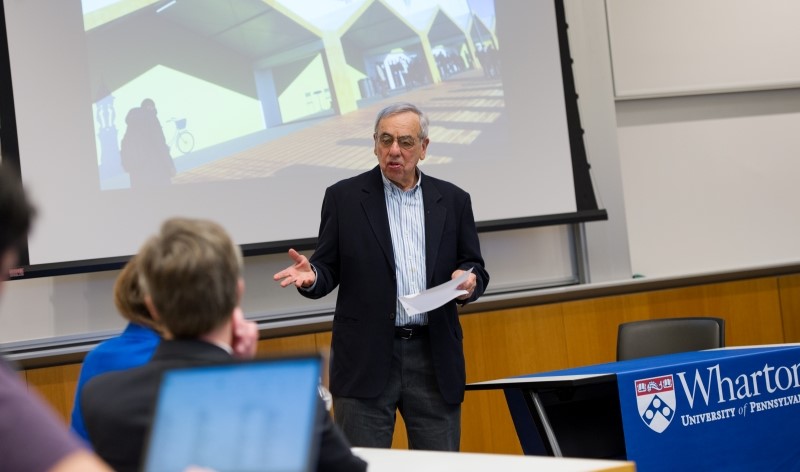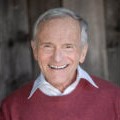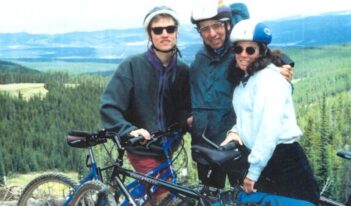
Kunreuther served as both a mentor and a pathbreaking researcher during his time at Wharton.
Howard Kunreuther was the first faculty member that I met in 1974 at the newly formed Decision Sciences Department at Wharton.
We met when, as a green Ph.D. candidate, I interviewed for a position in the department. The new department was a spin-off from Wharton’s Management Department and its mission was to create a new discipline that would integrate the fields of operations research, information systems management, and decision processes. Howard was an enthusiastic sponsor of the initiative, and he encouraged me to join him and his colleagues on this ambitious journey.
Howard had a knack for making others feel welcome and comfortable. Due to his contagious enthusiasm, I agreed that joining Wharton would be the right decision for me.
Howard was interested and engaged in an amazing range of topics. He was always open to input. His contributions focused on incorporating behavioral issues into economics and decision models. His research on insurance for natural disasters broke new ground in the field.
Howard’s ability to communicate with me about my research especially impressed me. He always had interesting suggestions about how my research could intersect with his own, which made him a creative and stimulating colleague.
Perhaps the most meaningful memory I have of working with Howard had to do with our dear departed colleague, Paul Kleindorfer. Paul was at the near-terminal stage of his illness and was completely paralyzed, except for eye movement, which he used to control a computer. Howard provided amazing support to Paul during those difficult days.
When Paul was elected to be honored as an MSOM Distinguished Fellow, the fellowship rules required the honoree to present a lecture at a society meeting. Unfortunately, Paul was not able to travel at that time, given his health condition. He was able, however, to prepare a presentation based on his most recent, current research on environmental sustainability. Paul asked me to give his talk, to which I happily agreed, having previously used Paul’s PowerPoint slides for teaching. Thankfully, Paul was able to watch the event from France.
Howard and I also wrote a joint paper that documented Paul’s research contributions, which was a labor of love for us both. Howard was at Paul’s side throughout that period, demonstrating his compassion and warmth as a human being.
Even though Howard was the senior member of our department’s Decision Processes (DP) group, he was a poster child for the department’s long-term goal of integrating its research with that of the Operations, Information and Decisions group. Although we did not fully achieve our objective of creating a new discipline, the department, stimulated by Howard and others, became a remarkable source of graduate students who went on to have highly successful academic careers. A hallmark of research in our department was a deep connection to real-world problems and an openness to multi-disciplinary endeavors. Researchers also advanced our field by pairing advanced empirical research with rigorous analytical modeling.
Although others perceived Howard as a DP guy, he had a strong background and interest in operations management. We jointly taught several operations management courses to Wharton MBA students. It was always a delight to work with Howard, and I gained a lot from his experience and commitment to teaching. I was especially impressed by how Howard incorporated current research developments into the classroom.
Last but not least, Howard also was famous for his endurance as a cyclist, commuting to Penn regardless of the weather. Many of us in the department joined him in cycling.
We all miss Howard. His legacy is reflected in our department, recently renamed the Department of Operations, Information and Decisions, which is consistent with the original goal of the department which he pioneered and nurtured throughout his lengthy and celebrated career.
This essay is part of a series celebrating the life and scholarship of Howard Kunreuther, titled “Commemorating Howard Kunreuther.”




